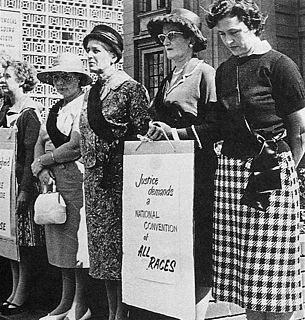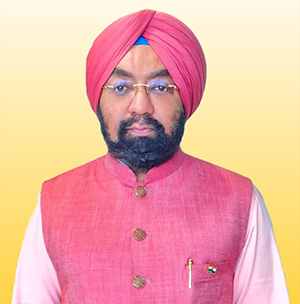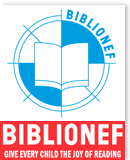
The Organisation of African Unity was an intergovernmental organization established on 25 May 1963 in Addis Ababa, Ethiopia, with 32 signatory governments. One of the main heads for OAU's establishment was Kwame Nkrumah of Ghana. It was disbanded on 9 July 2002 by its last chairman, South African President Thabo Mbeki, and replaced by the African Union (AU). Some of the key aims of the OAU were to encourage political and economic integration among member states, and to eradicate colonialism and neo-colonialism from the African continent.
The Black People's Convention (BPC) was a national coordinating body for the Black Consciousness movement of South Africa. Envisaged as a broad-based counterpart to the South African Students' Organisation, the BPC was active in organising resistance to apartheid from its establishment in 1972 until it was banned in late 1977.

The Ağrı Province is a province in eastern Turkey, bordering Iran to the east, Kars to the north, Erzurum to the northwest, Muş and Bitlis to the southwest, Van to the south, and Iğdır to the northeast. It has an area of 11,376 km² and a population of 535,435 as of 2020. The provincial capital is Ağrı, situated on a 1,650 metres (5,410 ft) high plateau. Doğubayazıt was the capital of the province until 1946. The current governor is Süleyman Elban.

Apartheid was a system of institutionalised racial segregation that existed in South Africa and South West Africa from 1948 to the early 1990s. Apartheid was characterized by an authoritarian political culture based on baasskap, which ensured that South Africa was dominated politically, socially, and economically by the nation's minority white population. According to this system of social stratification, white citizens had the highest status, followed by Indians and Coloureds, then black Africans. The economic legacy and social effects of apartheid continue to the present day.

The Black Sash is a South African human rights organisation. It was founded in Johannesburg in 1955 as a non-violent resistance organisation for liberal white women.
South African farm attacks are violent crimes, including murder, assault and robbery, that take place on farms in South Africa. The attacks target farmers, who are usually white, and farm workers, who are usually black. Black farmers are also victims of violent attacks. The term has no formal legal definition, but such attacks have been the subject of discussion by media and public figures in South Africa and abroad. There is insufficient data to reliably estimate a murder rate for South African farmers. South African government data indicated between 58 and 74 murders on farms annually in the period 2015–2017; out of an annual murder count of 20,000 total murders in South Africa; these figures are broadly consistent with figures collected by the Transvaal Agricultural Union (TAU), a farmers' union. Due to the problems associated with counting the number of South African farmers and farm murders, it is unclear whether farmers are at greater risk of being murdered than other South Africans.
The South African Students' Organisation (SASO) was a body of black South African university students who resisted apartheid through non-violent political action. The organisation was formed in 1969 under the leadership of Steve Biko and Barney Pityana and made vital contributions to the ideology and political leadership of the Black Consciousness Movement. It was banned by the South African government in October 1977, as part of the repressive state response to the Soweto uprising.

The Workers Organisation for Socialist Action (WOSA) was a Trotskyist organisation in South Africa. Launched in April 1990 as a national organisation, the WOSA was opposed to racism, tribalism and sexism and supports socialism, accountability, democracy and the leadership of the black working class.

Agris is a commune in the Charente department in the Nouvelle-Aquitaine region of southwestern France.

Internal resistance to apartheid in South Africa originated from several independent sectors of South African society and took forms ranging from social movements and passive resistance to guerrilla warfare. Mass action against the ruling National Party (NP) government, coupled with South Africa's growing international isolation and economic sanctions, were instrumental in leading to negotiations to end apartheid, which began formally in 1990 and ended with South Africa's first multiracial elections under a universal franchise in 1994.

Macaroni soup is soup that includes macaroni. The food is a traditional dish in Italy, and is sometimes served with beans, which is known as pasta e fagioli, and was also included in Mrs Beeton's Book of Household Management where the connection with Italy is mentioned and the dish includes parmesan cheese. In the early 19th century, macaroni soup was one of the most common dishes in Italian inns.

Self Help Africa is an international charity that promotes and implements long-term rural development projects in Africa. Self Help Africa merged with Gorta in July 2014, and the group of companies operates under the Self Help name.

Kobus Marais is a South African politician, Member of Parliament with the Democratic Alliance, and the current Shadow Minister of Defence and Military Veterans.

The White Liberation Movement was a small but notorious South African neo-Nazi organisation which became infamous after being banned under the Apartheid regime, the first right-wing organisation to be so banned. It regarded itself as the most far-right organisation in South Africa.

Vikramjit Singh Sahney also known as Vikram Sahney, a Member of Parliament, Rajya Sabha from Punjab is a Social entrepreneur, educationist, philanthropist and social activist. Vikramjit Sahney is the Founder and Chairman of Sun Foundation- An NGO aimed at helping the incapacitated and underprivileged of the society. He has been conferred with one of the highest civic honour of Padma Shri by the Hon'ble President of India Smt. Pratibha Patil for his extraordinary contribution towards the welfare of society at large.

The Cornwall Area of Outstanding Natural Beauty covers 958 square kilometres (370 sq mi) in Cornwall, England, UK; that is, about 27% of the total area of the county. It comprises 12 separate areas, designated under the National Parks and Access to the Countryside Act 1949 for special landscape protection. Of the areas, eleven cover stretches of coastline; the twelfth is Bodmin Moor. The areas are together treated as a single Area of Outstanding Natural Beauty (AONB).
European Marketing Research Centre (EMRC) (is a not-for-profit international association, founded in 1992 in Brussels, Belgium. The organization exists to encourage and facilitate private sector investment in Africa to create sustainable economic development and drive regional change through international partnerships. EMRC is a collective network of entrepreneurs, financiers, consultants and officials based throughout the world. The organization’s strategic focus is to support economic development in Africa through partnership between African entrepreneurs and ventures and international corporations, and financial services firms. EMRC also supports intercontinental collaboration between African ventures.

Biblionef is a book donation non-profit organisation based in several countries Netherlands, South Africa, France, Dutch Caribbean, Flanders, Surinam and Ghana. Biblionef donates new storybooks to under-privileged children and adolescents. The organisation donates books to institutions like schools, day care centres, crèches and other organisations with an educational focus in informal settlements and rural areas.

DestaGlobal started as an Indian startup technology company working in agriculture sector. The name ‘Desta’ is derived from an Amharic term which means happiness. The organisation was founded in 2010 by Ron Boehm, Marlys Boehm and Nishant Banore.
The Agricultural and Processed Food Products Export Development Authority (APEDA) is an Indian Apex-Export Trade Promotion Active government body.















